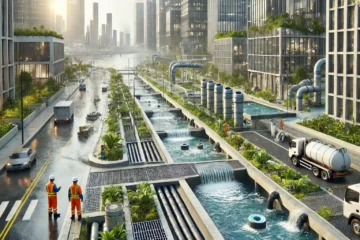Infrastructure: The Backbone of Progress
Infrastructure, the fundamental facilities and systems that support economic activity, is essential for a nation’s growth and development. From roads and bridges to power plants and water systems, infrastructure projects play a pivotal role in shaping the future of societies.
Types of Infrastructure Projects
- Transportation Infrastructure:
- Roads and highways
- Bridges and tunnels
- Railways
- Airports and seaports
- Public transportation systems
- Energy Infrastructure:
- Power plants (fossil fuel, nuclear, renewable)
- Power transmission and distribution networks
- Oil and gas pipelines
- Water Infrastructure:
- Dams and reservoirs
- Water treatment plants
- Water distribution networks
- Wastewater treatment plants
- Telecommunications Infrastructure:
- Fiber optic networks
- Cellular towers
- Data centers
- Social Infrastructure:
- Schools and hospitals
- Housing and urban development
- Public parks and recreational facilities
Challenges in Infrastructure Projects
- Funding: Securing adequate funding for large-scale projects can be a significant challenge.
- Environmental Impact: Infrastructure projects can have a significant environmental impact, necessitating careful planning and mitigation measures.
- Social and Political Factors: Land acquisition, community displacement, and political instability can hinder project progress.
- Technical Complexity: Many infrastructure projects involve complex engineering and construction challenges.
The Future of Infrastructure
The future of infrastructure is poised for significant transformation, driven by technological advancements and sustainability considerations. Some key trends include:
- Smart Infrastructure: Integrating technology to optimize performance and efficiency.
- Sustainable Infrastructure: Adopting eco-friendly practices and materials.
- Resilient Infrastructure: Designing infrastructure to withstand extreme weather events and natural disasters.
- Digital Infrastructure: Expanding digital connectivity to bridge the digital divide.
Conclusion
Infrastructure projects are vital for economic growth, social development, and environmental sustainability. By carefully planning, implementing, and maintaining infrastructure, nations can create a solid foundation for a prosperous future.


